This post may contain affiliate links, from which we earn an income. Click here to read our affiliate policy.
What Has Two Years of Full Time Living in a Motorhome Taught Us?
Back in May 2020, we reached a milestone – we had been travelling Europe in a motorhome full time for two years! We already shared what we learned in our first year of motorhome travel in this post. These are our thoughts, musings and lessons learned in our second year of full time motorhome life.
Adaptability
A new overnight spot every couple of days and facing the inevitable confusion as you navigate around yet another supermarket is the stuff of motorhome travel, especially if you like to wild camp and keep on the move. Chuck in Brexit coinciding with a world-wide pandemic, and the last year of motorhome living has found us being more adaptable then ever!
We changed our van at the end of year one. An expensive mistake (more of that later), a motorhome which we were too nervous to take to anywhere remotely adventurous, we had to learn the quirks of our new-to-us, considerably older motorhome, on the road.
It was like going from a five star spa city hotel to a tired three star rural B&B in need of a make-over! Elderly motorhomes need regular attention as they grind to life every morning, ready for another day of being lived in. We had to learn the inner workings of the electrics, water and waste pretty quickly and got used to things breaking a little bit more often!
We headed to Morocco for a few months and loved the experience. But it’s nothing like motorhoming in Europe, and not remotely like taking a city break in Marrakesh. We found the poverty, and children begging, very difficult, and also struggled on occasion with the unsanitary nature of some parts of the country.
Morocco touched us in many ways though, and we learned to accept the harder aspects of the country alongside the sheer beauty of the incredible landscapes and its people.
Slowing Down
Year one was a scramble and a come down. In the space of three months we sold our house, most of our stuff and quit our stressful corporate careers. We bought a motorhome and changed our lives about as much as we could have done …other than going to live in a monastery on a mountain in Tibet!
We left the United Kingdom to tour Europe on a high, with the adrenalin from all that change still coursing through our blood and pushing us to see more and do more.
We covered 18,000 miles in 12 months living in a motorhome full time, ticking places off our list and congratulating ourselves on how many countries we had ‘done’ on our European motorhome tour.
In hindsight, it took nine months to relax and really believe that we had done it, we didn’t need to set an alarm or go to work – freedom was ours for the taking.
Now we slow travel, spending weeks in one area, travelling maybe 10-15 miles a day. The countries we pass through and people we meet are endlessly fascinating, and we have the time to fully appreciate that, along with the knowledge that we can.
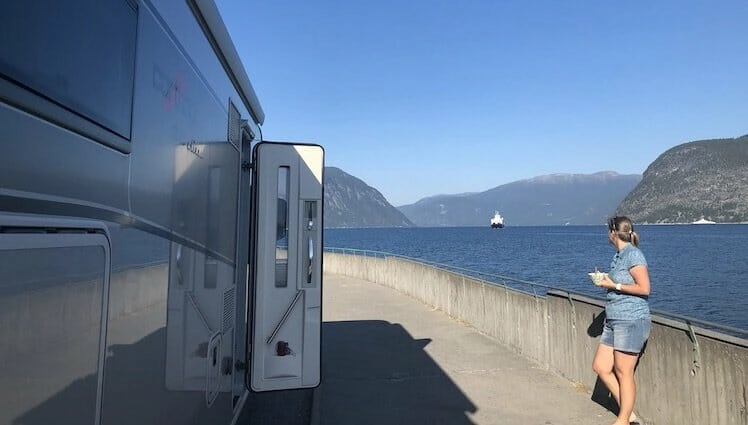
Less is Usually More
Although we understood that we would have to make a lot of compromises to change our lives and live in a motorhome, I don’t think we truly, fully embraced it in year one, certainly not for the first nine months anyway.
This is reflected in the fact that we bought an all-singing, all-dancing motorhome that had just 1200 miles on the clock. It was a beautiful vehicle that ended up just not fitting into our evolving vision of motorhome life.
We sold it and bought a twelve year old van with 40k miles on the clock and it suits us perfectly right now. With no pretensions, our quirky beast does exactly what our previous van did, but with more character, and a few more moans and groans too!
We no longer worry about damaging pristine paintwork or putting our feet up on plush leather – we don’t have those things and certainly don’t need them (our motorhome insurance is not eye-wateringly expensive either!).
We went adventuring to Morocco in our perfectly suited van (before Covid stopped play) and have lots of plans for some of the more rough and ready countries of Europe and beyond, as soon as we can travel properly again.
Patience
We are two pretty frenetic people who love a project. Beach holidays have never been for us …we like activity, big skies and wide open spaces and met in the Falkland Islands, one of the most remote places on earth. Living in a motorhome helps to facilitate that need, but at the same time, it can be constraining.
Big miles, long hours of driving, noisy and unwelcoming free motorhome overnight parking and rainy days which don’t lend themselves to outdoor adventures, have made us feel cramped and bored at times.
We have learned to occupy ourselves in different ways, slow down and appreciate wherever we are. If we can’t go for a 20 mile hike, we go for a gentle amble.
If we can’t find any white water for our inflatable kayak, we drift around on our paddle boards instead. The big mountains and white water will wait for us, and we are now content to wait for them.
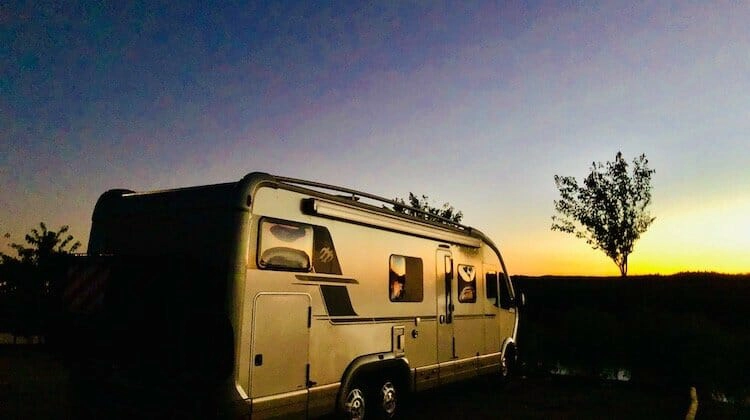
Resilience
I can’t remember the number of courses I took on resilience when I had a career – but it was a lot. This much vaunted skill, we were told, would help us bounce back from difficulties and develop ‘toughness’ in the workplace.
I forgot all about resilience until we started blogging six months into our camper van life. Boy, am I glad I did all that training! Getting to grips with the IT side of starting and running a website, coupled with growing a new business and all that comes with it, has been one of the hardest things we have ever done – even choosing the right laptop when you know nothing about them can be a challenge!
Somehow we found a shared inner core of determination and grit to push us out of our mental comfort zones, to achieve our wannabe digital nomad dreams.
Eighteen months into our blogging journey, we now run a successful touring Europe in a motorhome blog, where we collaborate with other bloggers and businesses and help motorhomers make their dreams come true.
There’s No Place Like Home
When it became clear in early 2020 that Brexit would take place, we had some decisions to make. Our life plan was to continue travelling in a motorhome across Europe (and beyond) for at least the next ten years with no fixed address, but it looked like Brexit might scupper that because of the Schengen Area and the 90 in 180 day rule.
We decided to buy a house in Spain, mainly because the cost of living is so low, houses are cheap (in comparison to the UK) and the accessibility to the rest of Europe is good. After we had bought our tiny mountain off grid bolt hole, we found out that an obscure EU law means that I can travel Europe with Phil on his Irish passport (although he’s a UK citizen, he was born on the island of Ireland, which entitles him to Irish citizenship) because we have ‘the right to a family life’.
Although we don’t need our Spanish house, we have discovered that having a base, albeit humble, feels good. Coming home after a motorhome road trip is somehow comforting; the familiarity welcome. The transition from house to van is exciting and lends a richness to our travels which we lacked when we lived in the van permanently.
Our desire to travel far and wide long-term is still strong. Our time at the house will be fleeting, but we value knowing we have bricks and mortar in which to retreat should life on the road change – and 2020 has taught us, if nothing else, that life can change pretty quickly!
Take Nothing for Granted
Several times during our years of living in a motorhome in Europe, we have found ourselves becoming complacent. Stunning new landscapes have failed to wow us, the thirst for knowledge about a new place has been missing and life on the road has felt hard. This is known as travel fatigue and, yep, it’s a real thing.
We have learnt to recognise the symptoms quickly. Staying in one place and holing up for a week on a campsite, binging on Netflix and long hot showers usually helps, as does meeting old friends for a good catch up or making new ones we meet on the road.
Planning road trips – thinking about our next adventure – is a great way of whetting the appetite for something new.
It’s easy to slip into believing that the extraordinary is normal when you travel full-time, and complacency can creep up on you. We have learnt to value every precious day we have, whether we’re stuck inside wild camping with the rain pounding on the roof of the motorhome or hiking to the top of a mountain for spectacular views.
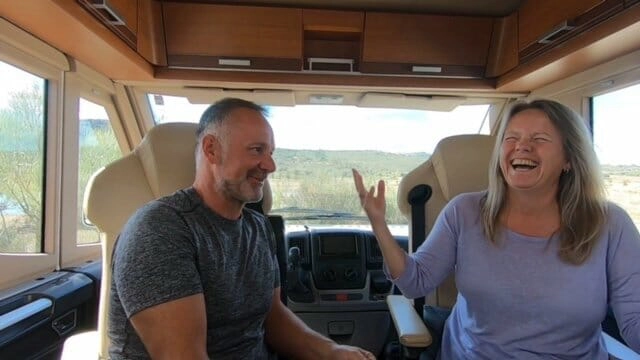
Contentment
After years of chasing the career dream, constantly pushing for the next promotion and following the money, motorhome life has rewarded us with contentment.
We don’t have much, because we don’t need much. Once we work out how much money we really needed, and realised that all the hamster wheel did was fund a lifestyle we didn’t need, we were free.
Our Top Reads for Long Term Travel in Europe by Motorhome
Are you looking for more motorhome tips & tricks? Check out these top posts…
Motorhome Travel in France: What Do You Really Need? (+ Checklist)
Working on the Road: 17 Realistic Income Ideas for Vanlife
Keep Your Motorhome Safe with Moving Intelligence UK
Must-Have Storage Ideas for Your Home on Wheels
Must-Have Mobility Aids for a Comfortable Motorhome Journey
MOT for Long-Term Travel Outside the UK: All You Need to Know
Love it? Pin it
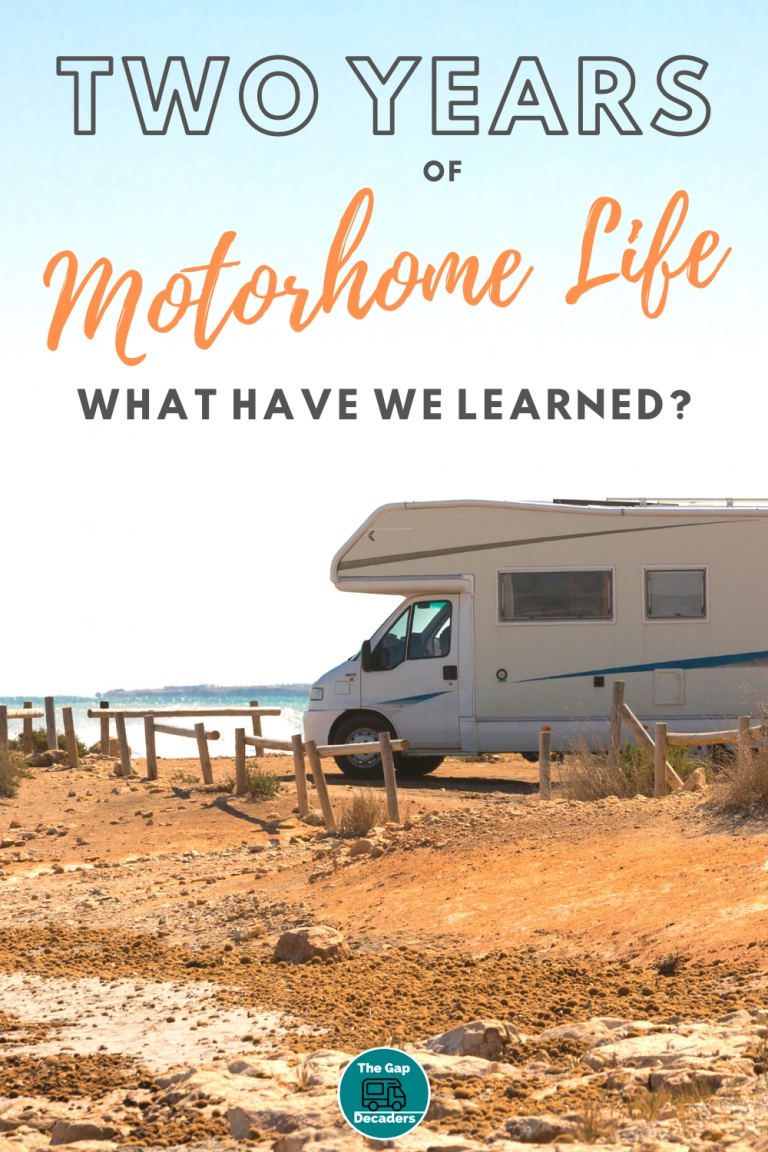
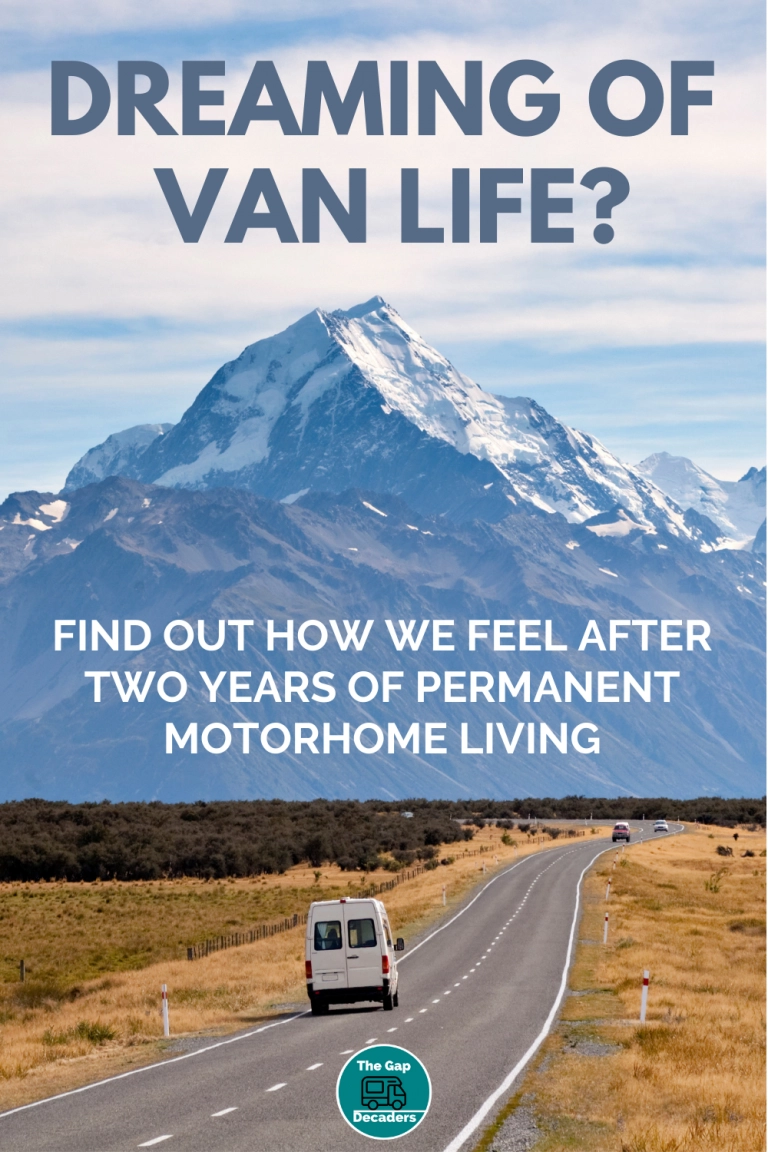

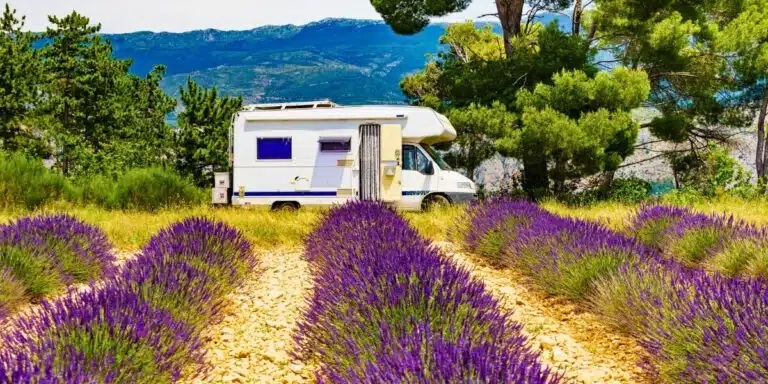
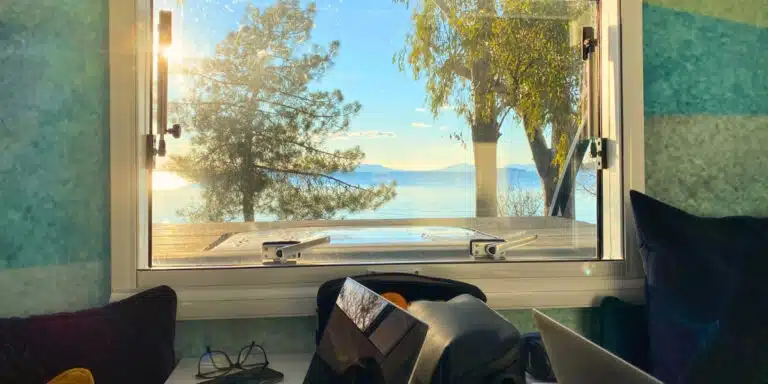
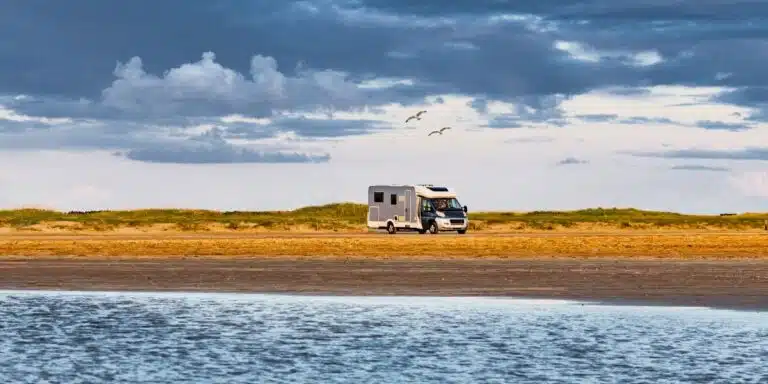
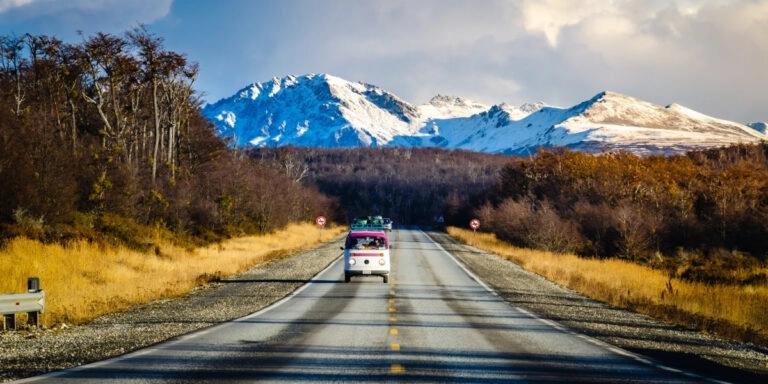
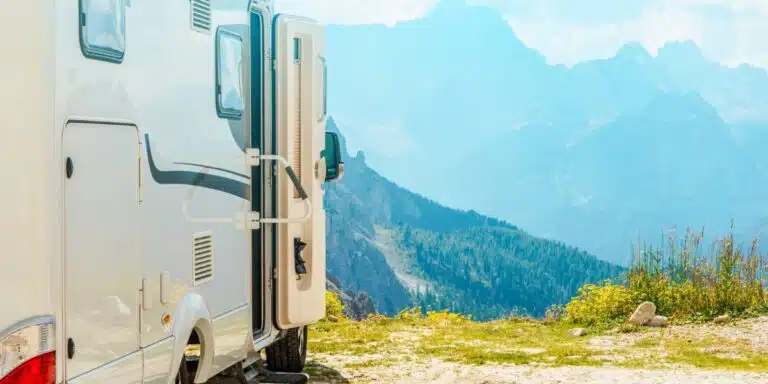
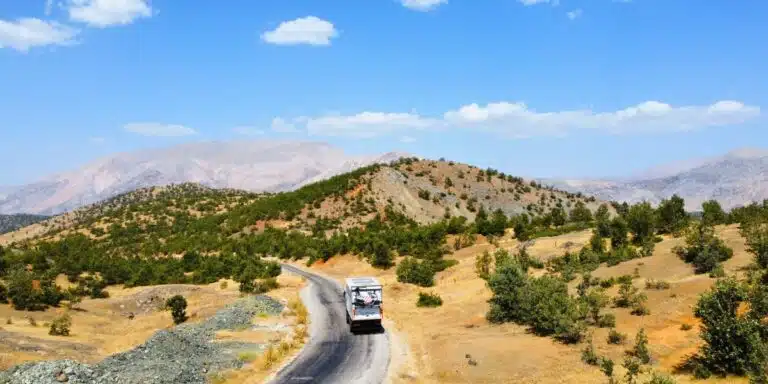
Hi Kate
I will respond by email also in case you don’t see this. This is what the EU shared with me when I emailed them ‘If you travel with your Irish husband, the conditions under which you (as his British wife who wants to accompany him) can travel for a long stay in the Schengen area, staying no longer than 3 consecutive months in any given Schengen Member State, would need to be looked at in accordance with Article 6(2) of Directive 2004/38.
According to Article 6(2) of Directive 2004/38/EC non-EU national family members of mobile EU citizens have the right of residence in another Member State for a period of up to three months if they are in possession of a passport and are accompanying or joining an EU citizen, without any limitation to 90 days in a 180-day period. Therefore the Directorate-General for Justice and Consumers considers that Schengen Member States may not refuse entry to its territory to the non-EU national family member accompanying an EU citizen because he has already been in the Schengen area for 3 months and has not left the Schengen area for another 3 months.
Member States may require EU citizens and their family members to register for stays going beyond three months.”
I hope that helps, we understand this to mean that we can travel as a family, as Irish citizens (although Ireland is not in the Schengen Area, it is a full member of the EU and so freedom of movement is granted), effectively placing us in the same position we were un before the UK left the EU.
Hi, you write that “an obscure EU law means that I can travel Europe with Phil on his Irish passport (although he’s a UK citizen, he was born on the island of Ireland, which entitles him to Irish citizenship) because we have ‘the right to a family life’.” Can you point me in the direction of that law please – we are full-timers and my husband holds an Irish passport by virtue of his parentage although he was born in England. We thought the Schengen laws would apply to us and have been considering our options, but if I can travel with him on my UK passport it changes everything.
Thanks Carol, glad to have bought a smile! Stay safe on your travels.
A lovely post guys, thank you and that photograph of the two of you laughing says so much and has bought a smile to my day. Hope you keep feeling the contentment and enjoying every day for lots more years.